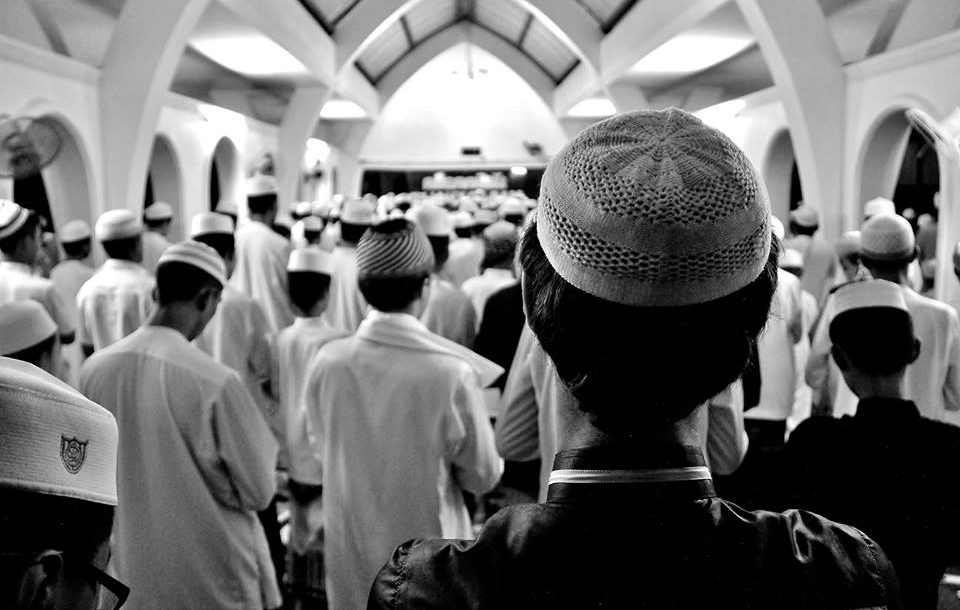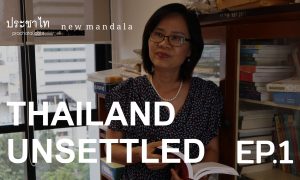When Malaysian Prime Minister Mahathir Mohamad visited Bangkok in late-October 2018, he pledged to help Thailand resolve the bloody separatist conflict in the country’s predominantly Malay-Muslim south. Yet the ongoing Kuala Lumpur-facilitated peace dialogue, dubbed kanphudkui santisuk, has made virtually no progress for the past four years.
The peace dialogue was first launched during the civilian government of Yingluck Shinawatra in February 2013—the first time in history that the Thai state formally held peace talks with rebels in the Deep South, who have fought for independence since the 1960s. The latest episode of violent resistance re-erupted in 2004 and has claimed nearly 7,000 lives. Initially, the agreement to launch the peace dialogue was signed between Thailand’s National Security Council and the Patani-Malay National Revolutionary Front (BRN), the rebel group with the strongest military capabilities.
Thai Prime Minister General Prayut Chan-o-cha resumed the Kuala Lumpur-facilitated peace dialogue in December 2014, seven months after he staged a military coup. Since then, the composition of parties to the dialogue has changed significantly on both sides. The military has assumed the driver seat in the Thai government’s dialogue team, while the rebel side has formed an umbrella group called Mara Patani. BRN has refused to take part in the talks, although some BRN members have joined Mara Patani on their own initiative.
Mahathir has appointed Abdul Rahim Noor, Malaysia’s former national police chief and head of the special-branch police, as a new facilitator. Abdul Rahim is an old hand who worked closely with Bangkok to secure a peace agreement with the Communist Party of Malaya during the Cold War. In the 1990s, he was also involved in holding secret talks with previous generations of separatists operating in southern Thailand, particularly the Patani United Liberation Front (PULO). On the Thai side, Bangkok has replaced General Aksara Kerdphol as head of the Thai dialogue panel with General Udomchai Thammasarorat, former commander of the Fourth Region in charge of the South.
But these changes are unlikely to move the stagnant peace dialogue forward due to three major obstacles: the Bangkok-centric agenda, Mara Patani’s questionable command and control over fighters on the ground, and BRN’s limited involvement. While violence in the South has declined in the past few years, this trend apparently has less to do with the peace talks or counterinsurgency operations than BRN changing strategies to increase its legitimacy in the eyes of international community.
Four years have been lost without any tangible achievement primarily because Bangkok has set the dialogue’s parameters to only serve its own agenda. Parties spent nearly a year discussing the talks’ terms of reference, disagreeing most notably over naming the dialogue party “Mara Patani”. Bangkok fears such formal acknowledgement would lend legitimacy to the insurgents. The issue was resolved only after Mara Patani made a tactical compromise and agreed to go along with Bangkok’s proposal in September 2016, which insisted on calling them “people with different opinions from the state”.
Since then, the establishment of a “safety zone” in Cho Airong district is the first and only subject that the Thai government and Mara Patani have discussed. While the parties reached an agreement in early 2018 on the safety zone’s framework and implementation plan, it was never officially endorsed because Bangkok eventually turned down Mara Patani’s request to sign the agreed documents—saying the signing was unnecessary.
While it seems that the junta’s main concern is controlling the violence, Prayut has told media that the peace dialogue is “not about negotiation”. Panitan Wattanayakorn, adviser to the deputy prime minister on security affairs, stated in a recent interview that, “The Thai government is opened to the peace dialogue as long as it does not involve secession and autonomy”. Yet BRN will not take part in a dialogue that serves only the Thai government. As Mahathir said during his two-day visit to Bangkok, the Thai government must be ready to “win some and lose some”. If Bangkok is unwilling to discuss fundamental political issues, neither a new facilitator nor head of the Thai dialogue panel will help bring lasting peace to the restive south.
The question of BRN
Without BRN’s full participation, Mara Patani’s command and control over fighters on the ground is questionable. Mara Patani comprises the Patani Islamic Liberation Front (BIPP), the Patani Islamic Mujahideen Movement (GMIP), PULO (in which DSPP and MKP factions have merged) and some BRN members. BIPP admits it has already ceased military operations, whereas the military wings of PULO and GMIP are believed to be fairly small. Abu Hafez Al-Hakim, a Mara Patani spokesman, has stated that a ceasefire is “difficult, if not impossible” without the participation of BRN’s military wing. Some observers view the relationship between Mara Patani and BRN as contentious, hostile and dividing. Still, Mara Patani has made some efforts to unite with BRN, including a proposal to change the umbrella organisation’s name. Recent developments suggest that the prospects of BRN and Mara Patani unifying are good.
But even if Mara Patani and BRN were to form a united front, the military government has thus far refused to consider BRN’s demands. This is perhaps the biggest obstacle to the peace dialogue. In a statement reported by BBC Thai, BRN emphasised five points:
- It is not opposed to the use of political means to resolve the conflict.
- The peace talks need to include international observers and an impartial facilitator, which have to be agreed upon by both parties,
- Both parties need to agree upon the framework and roadmap of the dialogue as well as the facilitator’s terms of reference.
- The Thai government and BRN must be the main dialogue partners, but the voices of stakeholders should be included.
- BRN calls for all sides to learn from other peace processes.
The statement is partly a criticism of the previous Malaysian facilitator, Zamzamin Hashim, who, in BRN’s view, forced their hand during talks under the Yingluck government. Kuala Lumpur can exert more pressure on BRN than other actors because a number of fleeing separatists and their leaders reside in Malaysia. While BRN does not completely oppose Malaysia’s facilitator role, it has called on other international organisations to take part as observers. Out of BRN’s demands, the junta is most opposed to the call for international observers, fearing that such a step would further internationalise the conflict and open the door to secession. The military has often cited the case of East Timor, claiming that the United Nations’ intervention was the turning point in its separation from Indonesia (whether or not this claim is true is debatable).
Yet Thailand could learn a great deal from the 21-year-long peace process between the Philippine government and the Moro Islamic Liberation Front (MILF). Peace talks culminated in the passage of the Bangsamoro Organic Law in July 2018, paving the way for the establishment of the Bangsamoro Autonomous Region in the Muslim-majority southern island of Mindanao. Manila requested that Malaysia facilitate the peace process in 2001 after years of failed domestic dialogue. Several other countries and international organisations have assisted the peace process in the Philippines.Particularly notable is the role of the International Contact Group—a body comprised of four countries (Japan, UK, Turkey and Saudi Arabia) and four international NGOs (Muhammadiyah, The Asia Foundation, the HD Centre for Humanitarian Dialogue and Conciliation Resources). It was set up in 2009 to observe negotiations, maintain trust between the dialogue parties and ensure the implementation of agreements. In the interview with BBC Thai, Abdulkarim Khalid, BRN spokesman, has singled out the International Contact Group as an example of how the international community can engage in the peace dialogue in southern Thailand.
Abdulkarim has said the group has “slowed down its military operations as it is pursuing the political way”, which seems to be a positive gesture. Now, the Thai government has to ask itself how far it is willing to go to secure peace. The crux of the matter is that the junta must be ready to negotiate substantive political issues, particularly the re-arrangement of power between Bangkok and communities in the Deep South.
This is an extended and updated version of an article first published in The Nation.
 Facebook
Facebook  Twitter
Twitter  Soundcloud
Soundcloud  Youtube
Youtube  Rss
Rss 



